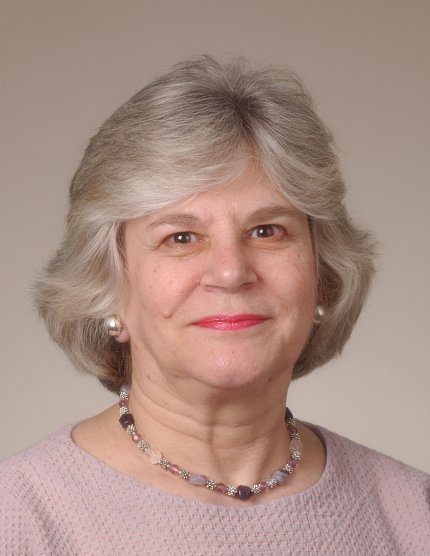Corsaro Retires from CSR

Dr. Cheryl Corsaro, a scientific review officer who retired in February, found her passion for puzzle-solving beneficial as she managed genetics-related study sections during her 34 years with the Center for Scientific Review, formerly the Division of Research Grants.
“Finding the right person with the right expertise to complement the rest of the study section was like finding the piece with just the right shape to solve a jigsaw puzzle,” she said.
The results were study sections known for their expertise and camaraderie.
“Cheryl was a wonderful colleague, the work she did was so comprehensive, so well-done,” said Dr. Richard Panniers, former chief of the genes, genomes and genetics integrated review group.
Dr. Elena Smirnova, current GGG chief, lauded her “tremendous track record in the genetics community.” She said members valued the poems Corsaro wrote about them when they rotated off the study section.
Corsaro grew up in Cleveland, the middle of three sisters. She loved math’s problem-solving aspects and originally planned to major in math at St. Mary’s College, Notre Dame, Ind. But a biology professor introduced her to genetics and sparked her lifelong interest in the field. She graduated as a biology major and moved to Johns Hopkins for a Ph.D. in human genetics.
Corsaro’s dissertation focused on the use of mammalian cell genetics to isolate mutants in cell culture and the impact of cell communication through gap junctions on the isolation of such mutants. She had postdoctoral fellowships at several places, including the University of Toronto and Caltech.
After a number of years at the bench, Corsaro took a career exploration workshop to help focus her next step. One assignment required her to interview someone with similar training but doing something different professionally. “I interviewed my grad school roommate, who was a program officer at NIH,” she said. From her, Corsaro learned about and was accepted into NIH’s Grants Associate Program, a program for people switching from research to administration.
After rotating through 12 assignments in a year, Corsaro found herself most drawn to peer review positions.
“I liked how review was explicit, with clearly defined tasks,” she said, “and I loved interactions with some of the smartest scientists in the country.” She joined the DRG/CSR staff.
Among other assignments as an SRO, she managed the genome study section and another on the ethical, legal and social implications of human genetics. More recently, she ran the genetics of health and disease study section.
In March, the remaining original extramural staff of the NIH genome center/institute held a luncheon to honor Corsaro. They recognized her as the SRO who introduced CSR reviewers to non-hypothesis driven research, so critical to the Human Genome Project. Her study section also suggested that the genome center/institute consider the R21 program to help PIs who had great ideas about genomic technologies, but no funds to generate preliminary data.
Corsaro also served on the trans-NIH bioethics committee and NIH ethics advisory committee. Among many awards, she is proudest of a CSR Director’s Award for her ethics-related contributions to NIH.
On the lighter side, Corsaro initially spearheaded and then participated in the Rockledgers, a popular group that created and sang parodies for CSR social events for more than 20 years. Fittingly, several Rockledgers composed two parodies for her retirement party.
Corsaro plans to stay in Maryland. She will hone her puzzle skills by playing bridge and tackling the jigsaw and crossword puzzle gifts she received from family in anticipation of her retirement.
